SPC vs WPC Flooring: What’s Better for Your Home?
Table of Contents
SPC vs WPC Vinyl Flooring: Pros, Cons, and Best Uses
When it comes to modern flooring solutions, luxury vinyl has revolutionized the market with its durability, affordability, and aesthetic appeal. Among the most popular types of luxury vinyl are SPC and WPC flooring. These innovative flooring options have gained significant traction in recent years, offering homeowners and commercial property managers alternatives that combine the look of natural materials with enhanced performance characteristics.
Understanding the differences between SPC (Stone Plastic Composite) and WPC (Wood Plastic Composite) vinyl flooring is crucial for making an informed decision about which flooring type best suits your specific needs. Both flooring solutions provide exceptional water resistance and durability compared to traditional vinyl, but they differ in composition, feel, pricing, and ideal applications.
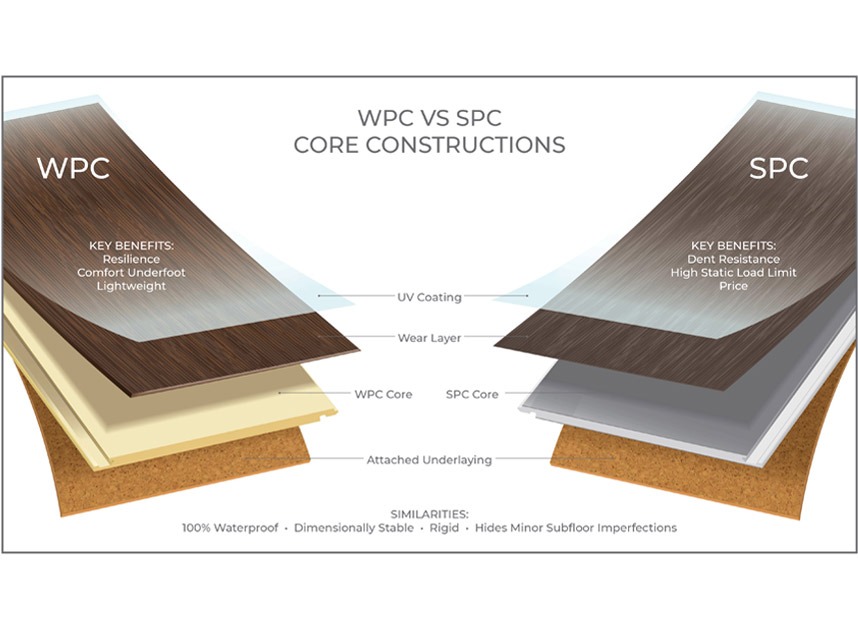
In this guide, we’ll break down the real-world pros and cons of SPC and WPC flooring , where each one works best, and what to consider before you make the call.
Vinyl Flooring: A Brief Overview
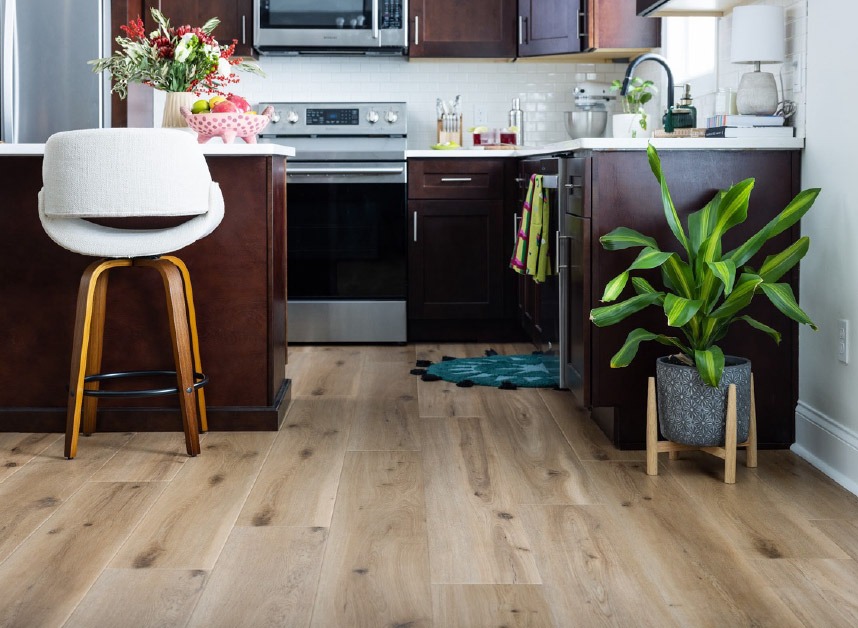
Vinyl flooring has come a long way since its introduction. Today's vinyl flooring offers remarkable versatility, durability, and aesthetic appeal that rivals natural materials like hardwood and stone. Modern vinyl plank flooring utilizes advanced manufacturing techniques and high-quality materials to create flooring that not only looks authentic but also performs exceptionally well in various environments.
The evolution of vinyl has led to the development of rigid core technology, which has transformed the vinyl flooring industry. Rigid core vinyl flooring provides enhanced stability, durability, and water resistance compared to traditional vinyl products. Two primary types of rigid core flooring have emerged: SPC and WPC.
Both flooring types feature a core layer that gives them their distinctive properties, with composite materials creating a more stable and robust flooring option on the market.
WPC Flooring: Composition and Characteristics
WPC flooring stands for Wood Plastic Composite flooring, a revolutionary flooring choice that combines the best aspects of wood and plastic. The core of WPC flooring consists of wood fibers or wood flour mixed with thermoplastic materials, creating a composite that offers exceptional stability and water resistance. This wood plastic composite core provides a soft, warm feel underfoot that many homeowners prefer.
WPC products typically feature a thicker profile compared to SPC, giving them a more cushioned feel when walked upon. The WPC core provides natural insulation properties, making WPC vinyl flooring a comfortable option in colder climates.
Additionally, WPC may include an attached cork or foam underlayment, further enhancing comfort and sound absorption. For instance, the Shaw Dwell Homespun Brown Luxury Vinyl features a WPC construction with an attached pad underlayment, enhancing both comfort and sound absorption. While WPC tends to be more expensive than other vinyl options, its comfort and acoustic benefits make it a popular flooring option for residential applications.
SPC Floor: Advantages and Disadvantages Of SPC
SPC floor technology represents another innovation in the flooring industry. SPC vinyl, or Stone Plastic Composite, utilizes limestone powder mixed with polyvinyl chloride and stabilizers to create an extremely dense and durable core layer. This stone plastic composite construction makes SPC core products incredibly stable and resistant to temperature fluctuations.
What makes SPC stand out is its exceptional hardness and dimensional stability. The core of SPC is significantly denser than WPC, resulting in a thinner yet more impact-resistant profile. Though SPC lacks the cushioning of WPC, it compensates with superior dent resistance and stability.
SPC vinyl flooring is highly regarded for its durability, making it ideal for high-traffic areas and commercial applications. Products like the COREtec Pro Chesapeake Oak are known for their resilience and ease of maintenance, making them ideal for high-traffic areas. The rigid nature of SPC makes it less susceptible to expansion and contraction, allowing for installation in environments with significant temperature variations.
SPC vs WPC: Difference Between SPC Core and WPC Core
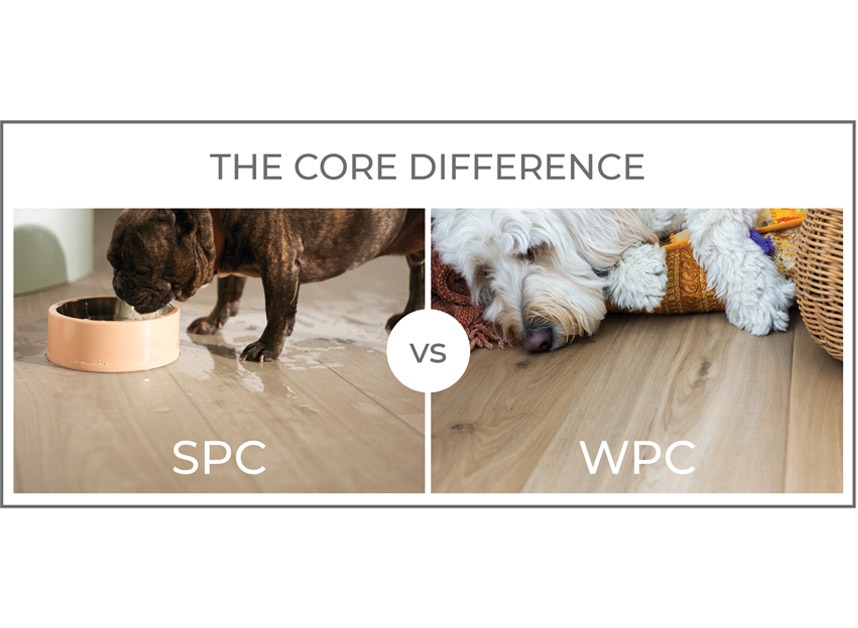
When comparing SPC vs WPC, several factors come into play. The primary difference between SPC and WPC lies in their core composition. While both are waterproof vinyl flooring options, SPC utilizes stone-based materials for its core, whereas WPC incorporates wood-derived components. This fundamental difference affects everything from feel to functionality.
SPC vinyl flooring is known for its exceptional hardness and density. Compared to WPC, SPC has a higher resistance to denting and impact damage, making it ideal for commercial spaces and areas with heavy furniture. However, this hardness means that SPC tends to feel firmer underfoot.
In contrast, WPC flooring offers more cushioning and warmth, providing greater comfort for extended standing or in residential settings. The differences between SPC and WPC extend to sound absorption, with WPC generally offering superior acoustic properties due to its less dense composition.
| Feature | SPC (Stone Plastic Composite) | WPC (Wood Plastic Composite) |
|---|---|---|
| Core Material | Stone-based (limestone + PVC) | Wood-based (wood flour + PVC) |
| Durability | Extremely durable and dense – great for high-traffic or commercial spaces | Durable, but softer and more prone to dents under heavy furniture |
| Feel Underfoot | Firmer, less forgiving – can feel hard without underlayment | Softer and more cushioned – comfortable for long periods of standing |
| Sound Absorption | Louder and more echo-prone without extra padding | Naturally better at absorbing sound – quieter to walk on |
| Temperature Resistance | Excellent – handles temperature swings like a champ | Good, but can expand/contract a bit more with changes in temp |
| Best For | Kitchens, hallways, commercial settings, rentals | Bedrooms, living rooms, apartments, places where comfort matters |
| Cost | Typically more budget-friendly | Usually a bit pricier due to added comfort features |
Luxury Vinyl Plank Flooring: Style and Design
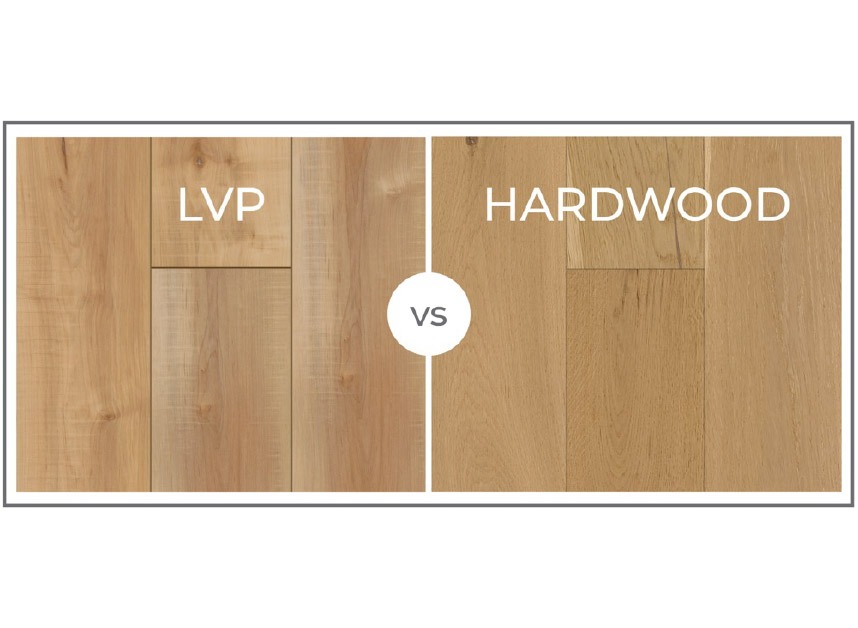
Both SPC and WPC vinyl flooring fall under the category of luxury vinyl plank flooring (LVP), offering high-end aesthetics that mimic natural materials. These luxury vinyl products feature advanced printing technology and texture embossing, creating remarkably realistic imagery that makes the vinyl look virtually indistinguishable from hardwood or stone.
The top wear layer of luxury vinyl plank flooring provides protection against scratches, stains, and fading, ensuring long-lasting beauty.For example, the Cali Vinyl Laguna Pacific Plover offers waterproof, durable luxury vinyl planks with oak grain textures, providing a natural look without the maintenance concerns of real wood.
The level of detail is impressive. You can see wood grain patterns, knots, and subtle variations in color that give each plank a more realistic and lived-in look. It’s a simple way to bring warmth and character into a space without dealing with the challenges of real hardwood or stone.
There’s also plenty of room to personalize. Whether you prefer wide or narrow planks, lighter tones or richer colors, traditional or modern styles—you’ll find options that work for your home’s design.
Even better, they’re built to last. A durable top layer helps protect against scratches, stains, and fading, which means your floors stay looking fresh without constant upkeep.
Pros and Cons of WPC Vinyl Flooring
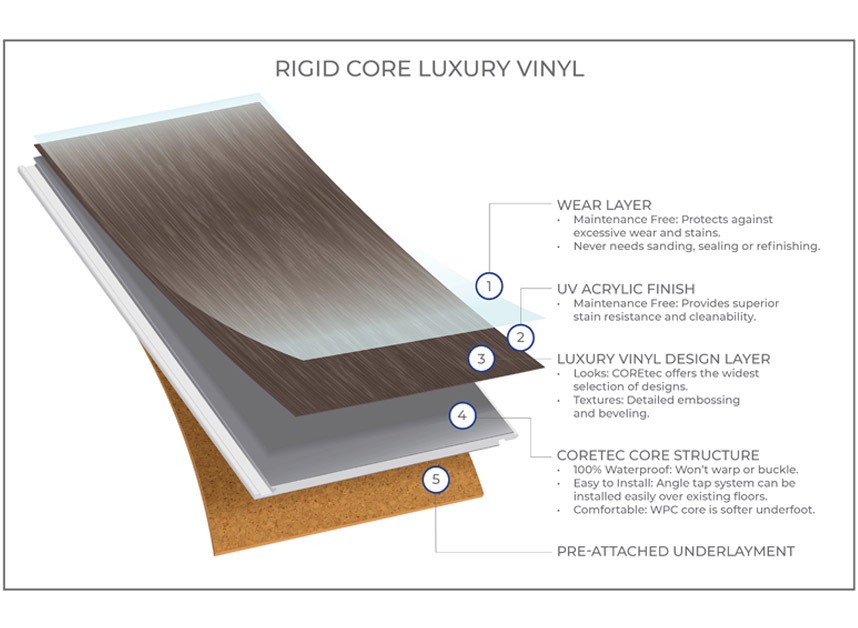
Pros:
- Offers more comfort underfoot due to its wood plastic composite core
- Feels warmer and more cushioned compared to SPC
- Absorbs sound better, making it quieter to walk on
- Often comes with an integrated underlayment, which helps reduce noise and makes installation easier
- Enhanced comfort and acoustic performance make it a great choice for homes, especially bedrooms and living areas
Cons:
- Generally priced higher than SPC alternatives
- The thicker profile can affect flooring transitions and may require door adjustments during installation
- Not as ideal for high-traffic areas or commercial spaces due to its softer core
Pros and Cons of SPC Vinyl Flooring
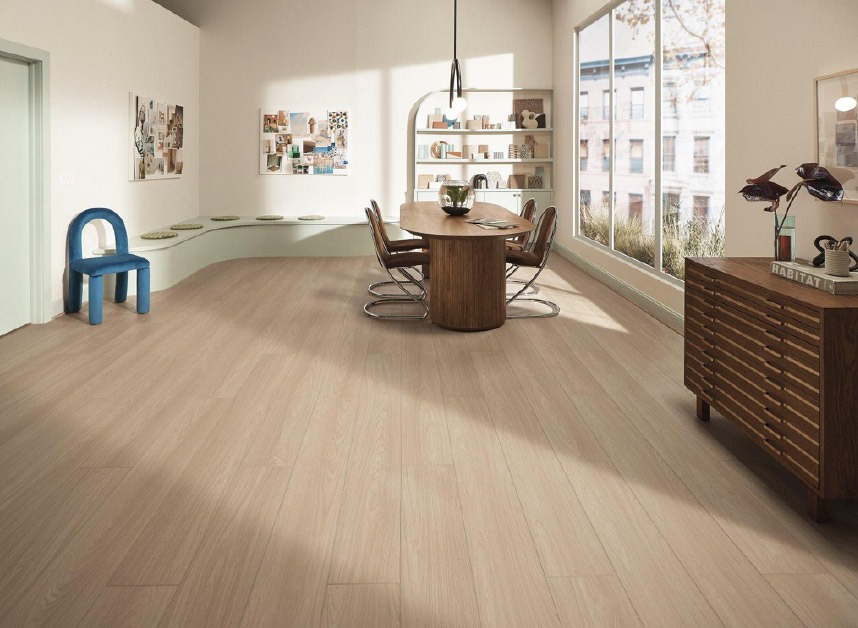
Pros:
- Extremely durable thanks to its dense stone plastic composite core
- Excellent resistance to dents and impact—handles heavy furniture and traffic with ease
- Maintains stability even with temperature fluctuations—suitable for sunrooms and three-season rooms
- Thinner profile makes it easier to match with existing flooring or clear door thresholds
- Often more affordable than WPC while still offering strong performance
- Ideal for commercial use or busy areas in the home
Cons:
- Rigid core makes it feel harder underfoot, which may be uncomfortable for long periods of standing
- Without added underlayment, it tends to be louder when walked on
- Provides less insulation, which can make it feel colder on bare feet
- Less forgiving in terms of comfort and sound absorption compared to WPC
Rigid Core Luxury Vinyl Flooring: Installation Considerations
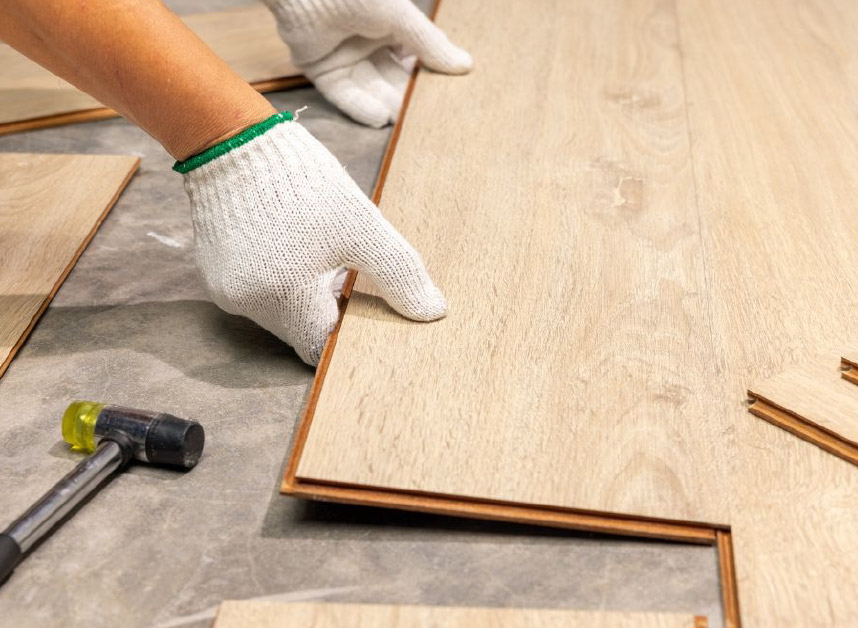
Both SPC and WPC flooring fall under the category of rigid core luxury vinyl flooring, and they share several installation advantages. Unlike traditional vinyl that requires a perfectly smooth subfloor, rigid core vinyl flooring can be installed over many existing surfaces with minor imperfections. Most rigid core flooring offers click-lock installation systems, making them suitable for DIY flooring installation projects.
WPC Installation:
The thicker profile of WPC flooring may require extra consideration, especially regarding clearance for doors and transitions. Proper planning to accommodate the increased height ensures a smoother installation process and fewer adjustments later on.
SPC Installation:
SPC rigid core products typically have a thinner profile, requiring less modification to doors and transitions. They’re generally easier to install in existing spaces without extensive alterations. SPC flooring is also less sensitive to temperature variations, making acclimation easier.
Both flooring types require acclimation before installation, though SPC is generally less sensitive to temperature variations. For optimal results, following manufacturer guidelines for specific products is essential, as installation requirements may vary between brands and product lines.
WPC vs SPC: Best Applications
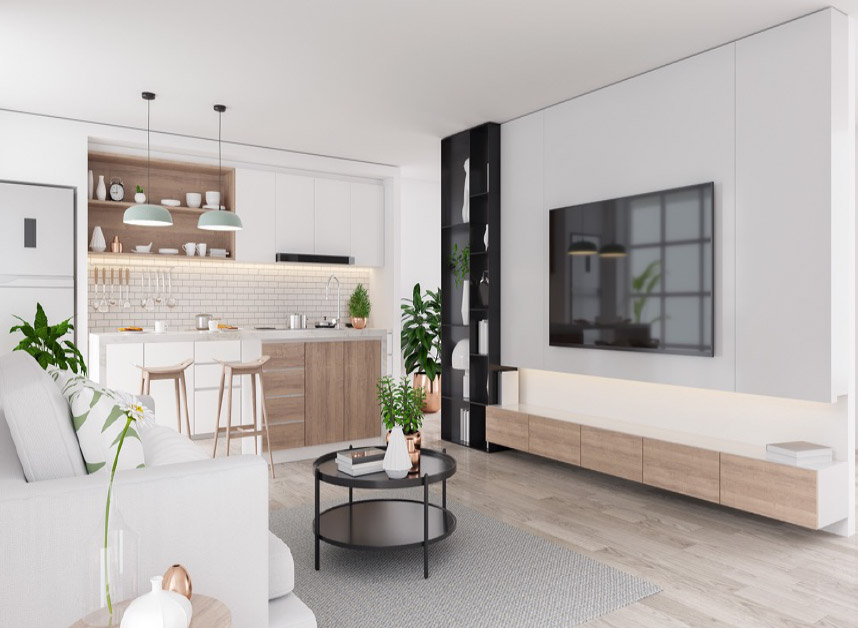
Choosing between WPC vs SPC often comes down to the specific requirements of your space.
WPC flooring is particularly well-suited for residential applications where comfort is paramount. Bedrooms, living rooms, and basements benefit from the warmer, more cushioned feel of WPC. The superior sound absorption of WPC also makes it ideal for multi-story homes or apartments where noise reduction is a concern.
In contrast, SPC or WPC flooring excels in high-traffic areas and commercial settings. Retail spaces, offices, and busy households with children or pets may benefit from the superior durability and dent resistance of SPC. Areas exposed to significant temperature fluctuations or direct sunlight are also better suited for SPC, as it maintains stability under these conditions.
Understanding these differences helps in selecting the right flooring for specific areas within a home or commercial space.
Luxury Vinyl Tile and Plank: Maintenance and Durability
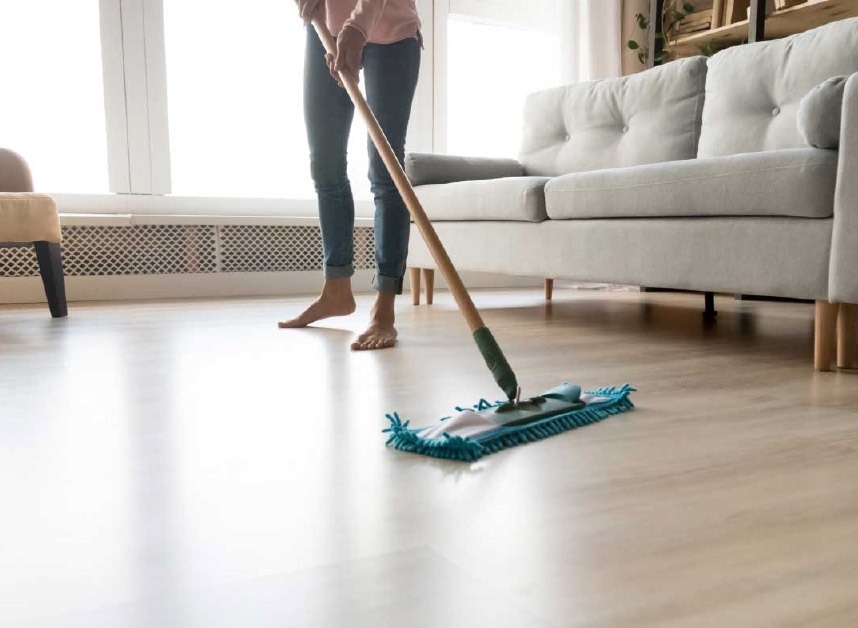
One of the significant advantages of both SPC and WPC luxury vinyl tile and plank options is their ease of maintenance. Unlike hardwood flooring that requires special cleaners and periodic refinishing, luxury vinyl flooring maintenance is highly durable and simple. Regular sweeping and occasional damp mopping are typically all that's needed to maintain these waterproof flooring solutions.
The durability of rigid core vinyl products is exceptional, with wear layers providing protection against scratches, stains, and fading. SPC is generally considered more durable in terms of dent resistance, while WPC offers better resistance to sound transmission.
Both flooring types are waterproof, making them suitable for kitchens, bathrooms, and other moisture-prone areas where traditional hardwood or laminate flooring would be problematic. With proper care, both SPC and WPC flooring can maintain their appearance and performance for many years.
Laminate Flooring vs. Rigid Core Vinyl: A Comparison
Laminate flooring:
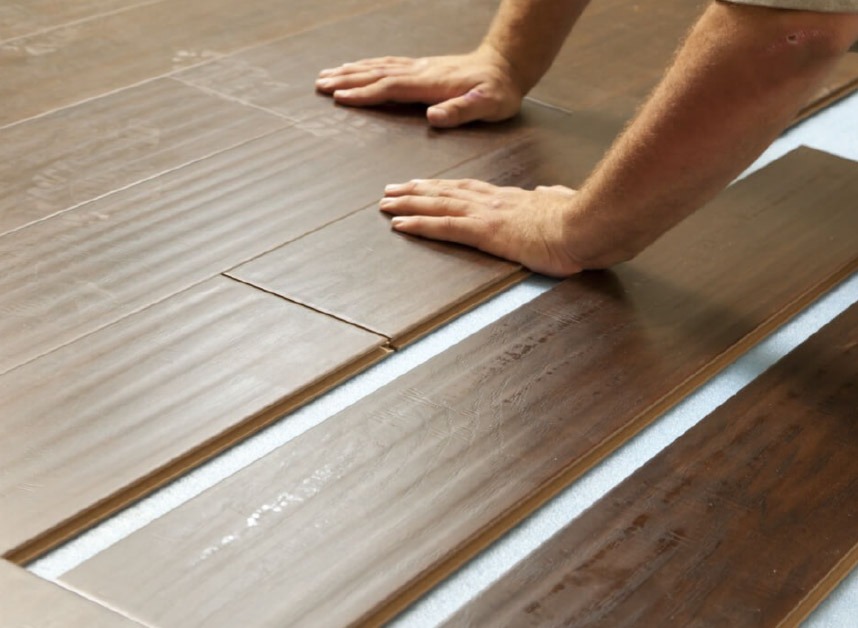
Has been a popular alternative to hardwood for decades. High-quality laminate flooring may offer competitive durability in dry environments, but most laminate products can be damaged by moisture. This makes it less suitable for areas where water exposure is likely, like bathrooms, kitchens, and basements.
Rigid core vinyl flooring (SPC and WPC):
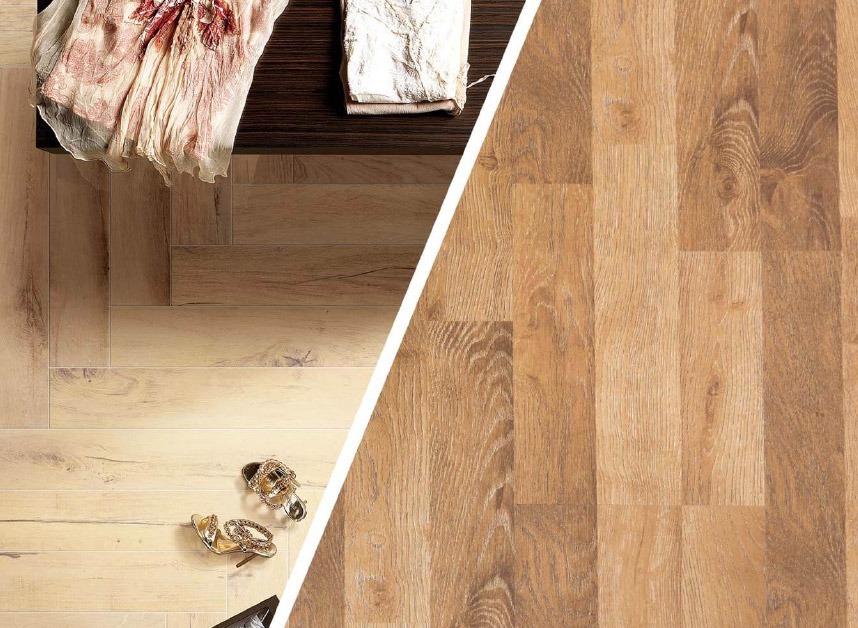
Offers several advantages over traditional laminate. The most significant is water resistance, both SPC and WPC flooring are waterproof. Rigid core flooring also tends to be quieter underfoot, especially WPC products with attached underlayment. Installation is often simpler, with more forgiving requirements for subfloor preparation.
While laminate still works well in dry conditions, the waterproof nature and enhanced comfort of rigid core vinyl have made it an increasingly popular flooring choice for modern homes.
Hardwood Flooring vs. Luxury Vinyl: Making the Right Choice
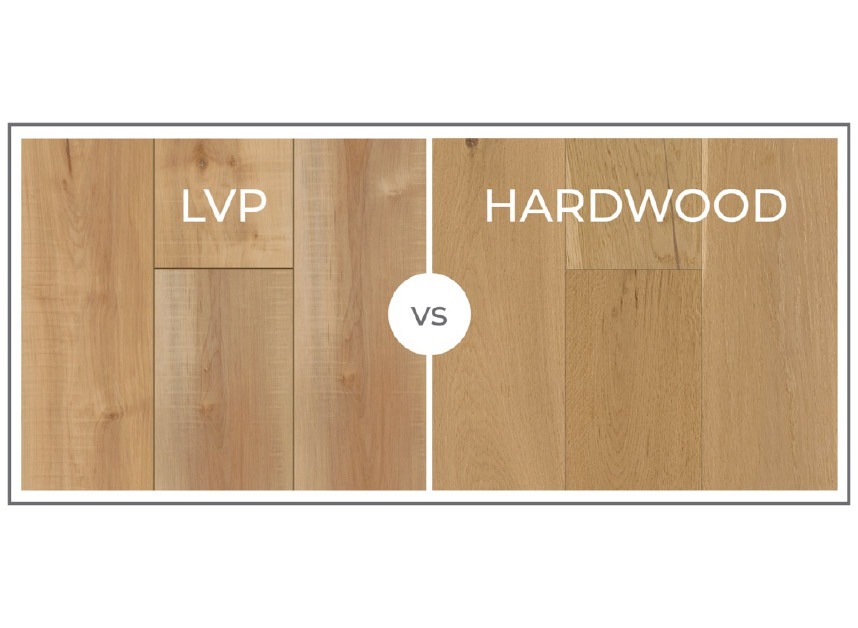
Hardwood flooring:
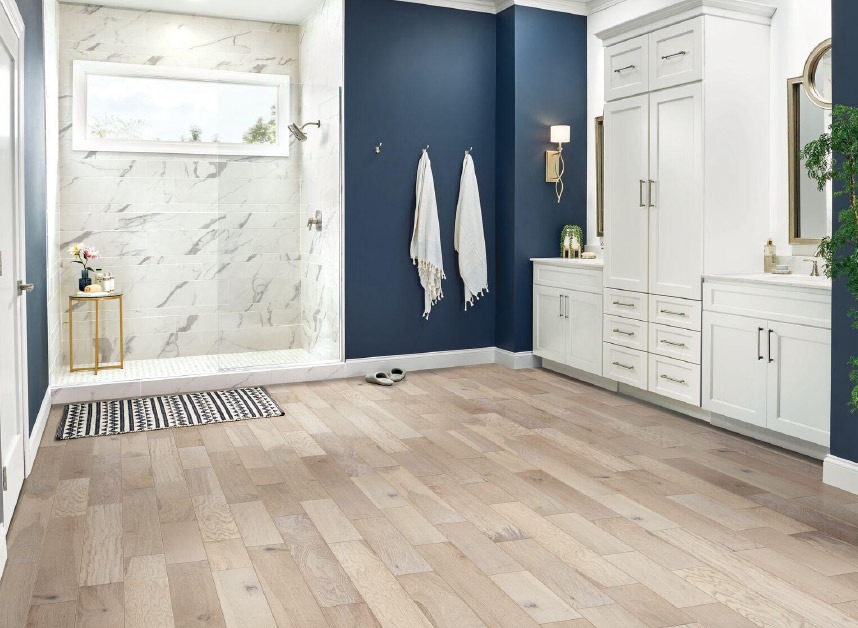
Has long been the gold standard for elegant home flooring. Nothing quite matches the warmth and natural beauty of authentic hardwood flooring, but it requires more careful maintenance and can be damaged by water. This makes it unsuitable for bathrooms and potentially problematic in kitchens.
Luxury vinyl plank flooring (SPC and WPC):
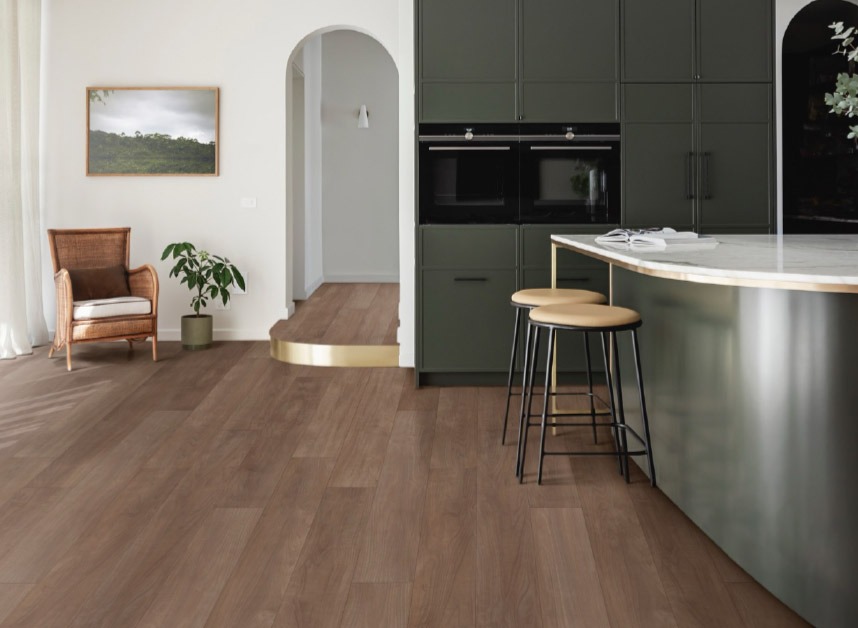
Offers compelling advantages. It can come remarkably close in appearance to hardwood while providing superior waterproof performance and easier maintenance. These vinyl products feature high-definition printing and embossing techniques that create realistic wood or stone looks. Both SPC and WPC flooring stand up well to moisture and require minimal maintenance.
Conversely, both SPC and WPC flooring stand up well to moisture and require minimal maintenance. While hardwood offers the prestige of a natural material, luxury vinyl provides practical benefits that make it an increasingly popular flooring for your home.
Flooring for Your Home: Making the Final Decision Between SPC and WPC Flooring
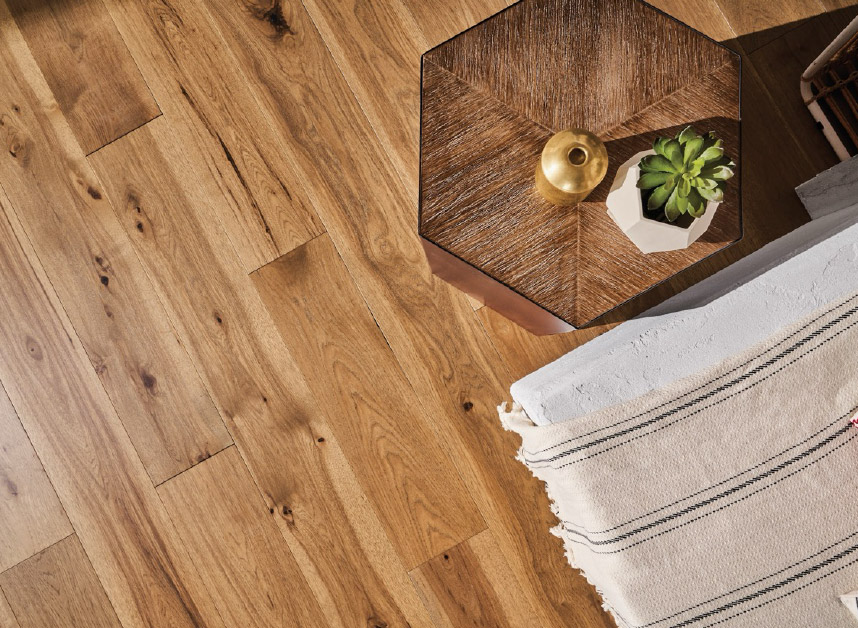
When selecting new flooring for your home, weighing the pros and cons of each flooring type against your specific needs is essential. Consider factors such as the room's function, moisture exposure, traffic levels, comfort requirements, and budget constraints.
If you're working in a busy area like a kitchen or hallway, or if you have kids or pets, a sturdier option like SPC might be a better fit. It's more resistant to dents and daily wear. On the other hand, for bedrooms or spaces where you’re often barefoot or standing for a while, WPC can be the more comfortable option.
Keep in mind that product quality can vary. Some brands offer better protection, thicker wear layers, or longer warranties. It’s worth checking those details before you decide.
Some homeowners even choose to use both types in different areas. You can go with SPC in places that need more durability and WPC in rooms where comfort matters more. In the end, it's about what works best for your home, your lifestyle, and how you want each space to feel.
Conclusion
Both SPC and WPC vinyl flooring represent significant advancements in durable waterproof vinyl flooring options, offering compelling alternatives to traditional flooring choices.
Whether you choose the exceptional hardness and stability of SPC or the enhanced comfort and acoustics of WPC, either option provides waterproof performance and realistic visuals that make them excellent choices for modern homes.
By carefully considering your specific needs and the particular characteristics of each flooring type, you can select the perfect flooring solution that balances beauty, performance, and value for years to come.
Frequently Asked Questions
Is SPC or WPC better for kitchens?
SPC. It’s tougher, more dent-resistant, and handles moisture better.
Can SPC flooring be installed over tile?
Yes. As long as the tile is level and stable, SPC can go right over it.
Is WPC flooring pet-friendly?
Yes, but it’s softer, so it may dent easier. Great for comfort, but keep claws trimmed.
